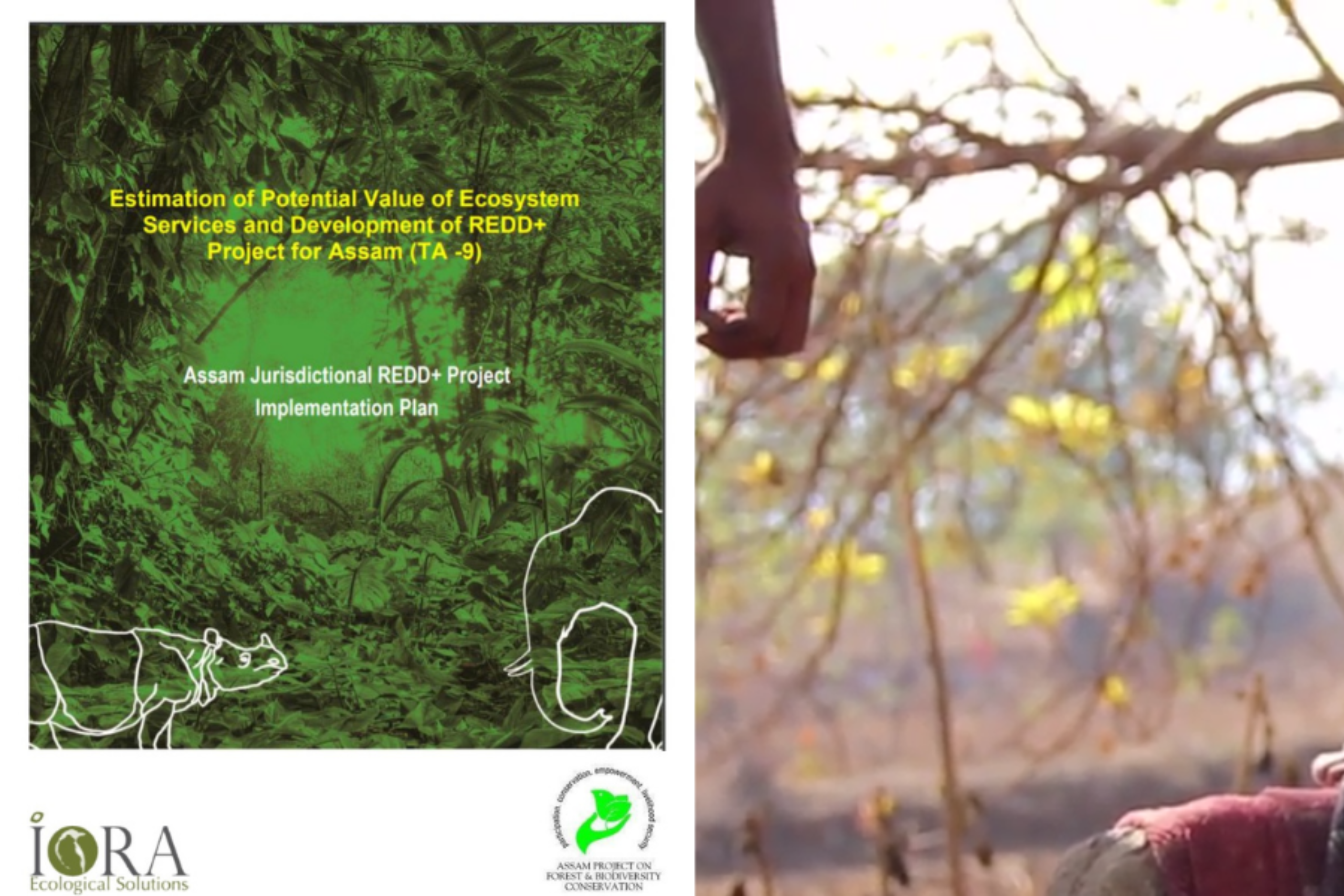With global leaders converging in Glasgow to discuss various methodologies to keep the global temperatures below 1.5 degree C, COP26, has become a crucial event that will define the way forward for Climate Risk Mitigation in the coming decades. The COP’s agenda centres around Nature-based Solutions (NbS), Forestry, Climate Change and REDD+ as a mode for combating climate change and its impacts.
The main theme is “need to work together to enable and encourage countries affected by climate change to protect and restore ecosystems, build defenses, put warning systems in place and make infrastructure and agriculture more resilient to avoid loss of homes, livelihoods and lives.” In achieving this, it will also be of utmost importance to countries to replenish and protect their forest cover.
Forests play a critical role in the cultural and traditional lives of local communities. They are also the sources of daily sustenance and livelihoods for these communities. The indigenous knowledge of the local communities about the landscapes, native species, traditional land-use practices and even effective forest management practices provide a new perspectives for climate mitigation. Direct involvement of local communities in planning and implementation of development programs not only motivates but also allows them to take charge of local natural resources for conservation and sustainable use leading to development of climate resilience.
Forest sector is the second largest land use after agriculture. In India, in remote, forest-fringe villages about 300 million tribal and other local communities depend on forests for their subsistence and livelihood. It is, therefore, important to keep these communities at the center of mitigation and adaptation efforts in the country.. These communities play an integral role in delaying, combating and reversing the climate crisis. Their support and participation in stakeholder engagements, conservation, policy-decisions, forestry and alternative livelihood and restoration programs is crucial in achieving climate ambitions and sustainable development goals.
Over time participatory approach/Community-based interventions have largely contributed towards furthering climate action in the country. IORA Ecological Solutions, since its inception has been operating along these principles, and has promoted / supported community engagement at appropriate stages of various projects, while working with them. One of our flagship programs – Innovations in Ecosystem Management and Conservation (IEMaC), aims at developing community based innovative methods for forest conservation. The interventions involved development of sustainable fuel-wood management practices, community-centric NTFP value chains and community-based forest monitoring.
Similarly, our Reduced emissions from Deforestation and Forest Degradation (REDD+) projects have been effective in integrating climate mitigation through reversing forest loss, degradation and reducing emissions. These projects simultaneously safeguard the livelihood of the communities by engaging them in all aspects of project development and implementation. Additionally, many of our projects accrue direct benefits for the communities from selling carbon credits.
Under the USAID Forest-PLUS program, IORA led the development of REDD+ pilot projects across four Indian states – Karnataka, Madhya Pradesh, Assam and Sikkim. We also provided financing plans for interventions, a PPP platform for forestry in India, advanced remote sensing algorithms for forest carbon mapping and the national REDD+ MRV Data Management System. Activities under this project included forest management, improved fodder technologies, community awareness, fuelwood alternatives, reduced reliance on forests, and alternative livelihood for the local communities.
One of our ongoing projects with NatWest Group India focuses on engaging local communities for conservation of forest resources, invasive species management and assisted natural regeneration, resulting in the creation of mitigation and adaptation assets for the community and the wider society in the form of carbon sinks through afforestation, restoration, and livelihood support and community adaptation, besides reinforcing forest hydrology.
The project bridges NatWest Group’s purpose towards a low carbon economy.
Understanding the role of communities in mitigating climate change and building climate resilience, we are determined to continue introducing community-based interventions, to gain insights from their traditional knowledge for developing innovative solutions and for building better climate resilience.






